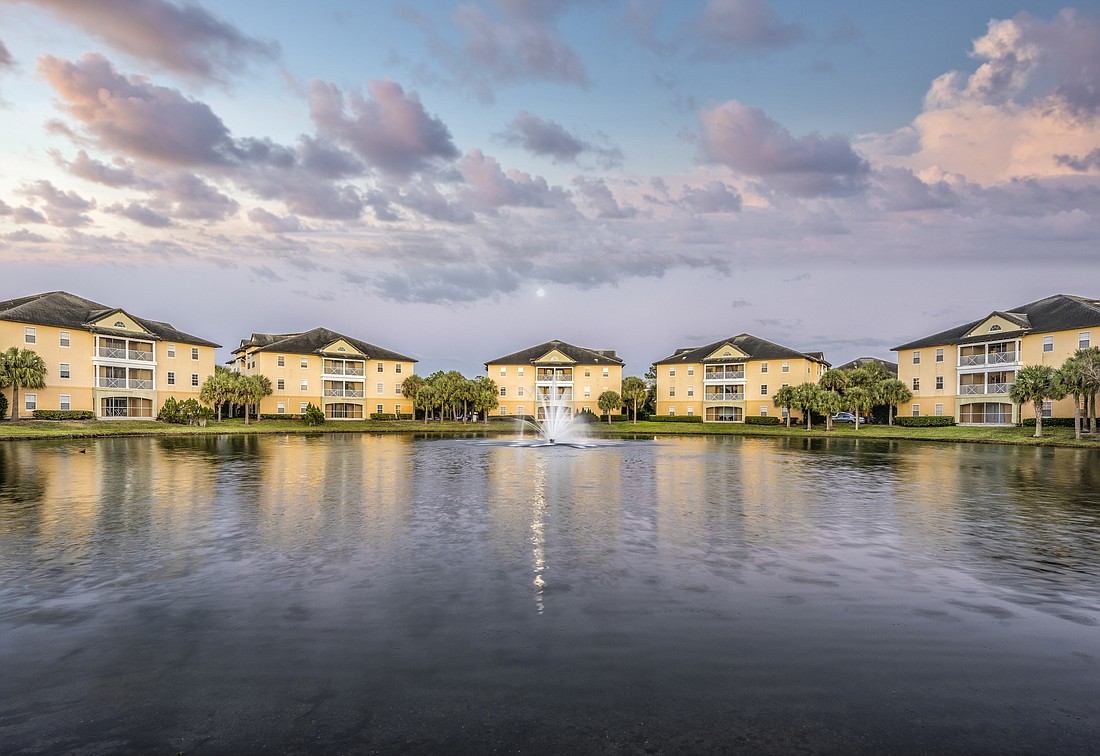- January 15, 2025
-
-
Loading

Loading

Despite investment jitters over the potential impact of COVID-19 on the apartment sector in some parts of the country, multifamily rental transactions in the Tampa Bay area continued largely unfazed during the second quarter.
CBRE Group’s Tampa-based multifamily team, for instance, closed six deals in the three-month period from April 1 through June 30 in Tampa and St. Petersburg.
In all, the regional transactions generated $143.3 million for sellers, though the overall figure was skewed by two deals for $101 million. There, Bridge Investment Group of Utah acquired the Veranda at Westchase complex in Tampa and the Viera Bayside community in St. Petersburg. Collectively, the two projects contain nearly 600 units.
In all, the CBRE executed eight apartment transactions with 1,135 units during the quarter, for a total of $162.45 million.
CBRE Executive Vice President Francesco Carriera acknowledges that while most of the transactions were either being actively marketed for sale or were already under contract of sale — with money down — prior to the quarter’s start, buyers remained committed to closing.
“I think it’s a testament to the amount of capital out there and the long-term belief in the sector,” says Michael Regan, another CBRE executive vice president who along with Carriera leads the brokerage firm’s Tampa multifamily team.
“Eight years ago, for instance, there were companies that had put together $50 million funds to buy apartments,” Regan adds. “Today, there are $1 billion funds, and as Tampa has grown, there’s pent-up demand for apartments here.”
The Tampa Bay multifamily market has, at least for now, avoided the rent collection erosion that many investors feared as a result of the healthcare crisis.
Nationwide, rent collections are down about six percent from a year ago, Carriera says. In Tampa Bay, collections are off by just four percent.
“In April, May and June, there weren’t really negative consequences for rent collections, so that boosted confidence even as it tested the resiliency of multifamily in Tampa,” Regan says.
“Tampa is now recognized nationally and globally as a good place for multifamily investment, which is why it’s outpacing Orlando, a city that for years overshadowed it,” Carriera adds.
Even so, the transaction volume was down by about half from the same period in 2019, the CBRE team says, and at least two of the trades that occurred experienced challenges.
One of the biggest issues roiling potential deals is the chasm between buyers’ and sellers’ perceptions, Carriera and Regan say. Sellers are sometimes reluctant to part with properties because they see no need to offer the discounts buyers feel entitled to receiving, for instance.
Many buyers are requiring more data on potential purchases and demographics than they had in the past, the CBRE team says.
“Institutional buyers, in particular, are starved for data, and they’re seeking detailed information on a more granular, submarket level,” Carriera says.
“We’re having to be in front of a lot more questions than before,” Regan says. “Buyers want resident profiles, employment histories — a lot more demographic information.”
As a result, the team has witnessed some changes to underwriting strategies, while others have evolved since the start of the pandemic.
Some owners are now forecasting zero growth for the foreseeable future; others are modeling higher vacancies than originally anticipated. Several buyers are adjusting their anticipated hold schedules in response to the virus.
But few deals are falling apart entirely, and the continuation of historically low interest rates will likely help spur transactions in the months ahead, the CBRE team says.
Carriera and Regan both say they expect activity to pick up in the latter half of this year — especially if progress on a COVID-19 vaccine continues. Both brokers say “aggressive offers” on The Pearl, a 314-unit complex within the Tampa Heights project, and the 343-unit Vista at Palma Sola apartments, in Bradenton, demonstrate investor optimism.
Carriera notes, however, that investor sentiment isn’t unified as a result of the coronavirus.
“There are a lot of mixed perceptions out there,” he says. “I’d say the market is pretty divided over what the next four quarters will look like for the apartment sector. About 50% of the people we talk to have moments where they think it’s going to be a doomsday scenario, while the other half are much more bullish about the next 12 months.”